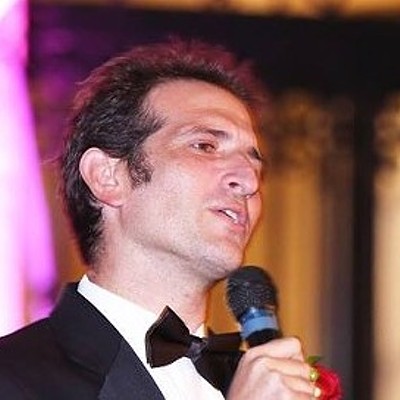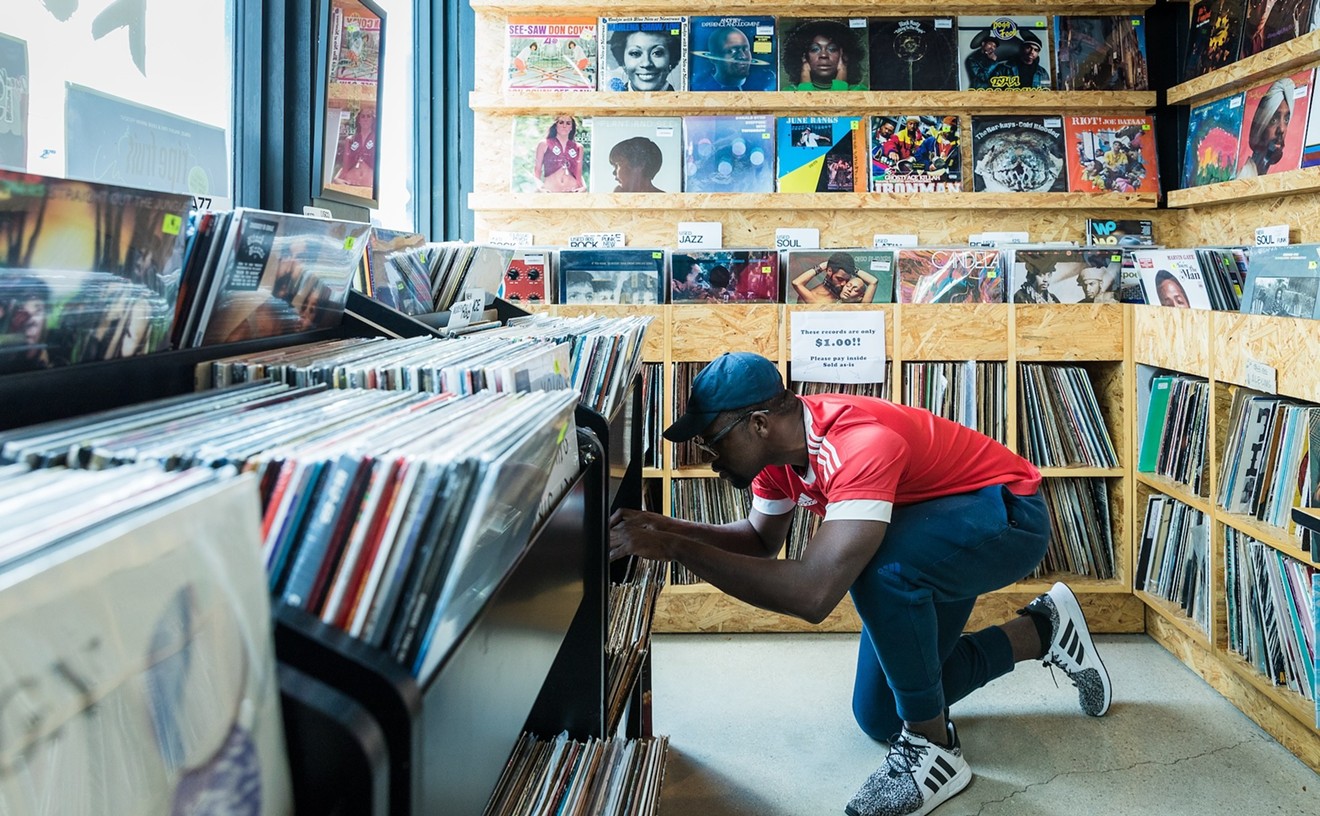"It's about life after death, what that has come to mean to me in the literal and metaphorical sense. It's dealing with the ending of a chapter in life, whether that's leaving school or ending a relationship," Meany tells New Times over the phone. "In the last five years, I became a father and said goodbye to some older family members. I realized the faces in my life were morphing."
Meany grew up in a suburb of New Orleans and learned to love music at an early age. "My father was a musician. He always had instruments in the house, and I was soon playing in church. I was playing drums as early as 5 and really got hooked when I figured out I didn't have to play piano the way the chords written down said you had to."
He went to high school at New Orleans Center for Creative Arts, which he credits for making him the musician he is. "You'd go half a day to school and spend half a day working on your art, which for me was piano and voice. Every Friday you'd have to perform in front of the school, which taught me how to perform even when you're not as prepared as you'd like to be. I went to school with heavy-hitters in the jazz scene, like Jason Marsalis, who were lighting it up."
Mutemath started when drummer Darren King visited New Orleans to collaborate with Meany in 2001. "It was going to be a side project. We were going to work on one song. We were big into Moby, DJ Shadow, and the Chemical Brothers. I introduced Darren to my sampler, and we were sampling old 1930s records." The first song they wrote, "Typical," eventually became their first single. "Darren was the singer on the demo, and I just produced it. We started playing shows, added some people, and something clicked.""I really got hooked when I figured out I didn't have to play piano the way the chords written down said you had to."
tweet this
It took a few years of heavy touring, but by their second record, 2009's Armistice, they had cracked the Top 20 of Billboard's album charts. But their rise was not without obstacles. The band sued its record label for marketing it as a Christian rock group. "That was a term I didn't feel applied to us or the parameters in which we set out to make music," Meany says. "I have no problem with artists and bands who strive for that category, but it didn't apply to us."
Over the course of its five full-length records, Meany says, Mutemath has tried to bring diversity to its music — which was mostly positive but sometimes to the band's detriment. "We've done overcorrection with previous albums, wanting to jerk the wheel violently. We'd go from heavy guitars to all synth. With this record, Play Dead, we cracked the code more than we have done anytime in the past. This is a culmination. It's the only album we've done with no outside collaborators. We did that intentionally because we trust each other the most. It's only the four of us, from the writing to the production and the mixing."
Many of the songs on Play Dead are five years in the making. Band members had written chord projections and partial lyrics but put them aside to work on the album that became their 2015 release, Vitals. After that record was completed and the accompanying tour was in the books, Mutemath went back to those unfinished works.
"I listened to those old demos, and light bulbs came on. I got clarity with how to shape those songs. We found through lines where there were once disconnections. We wrote some new songs to go along with them. The last ones were 'Break the Fever' and 'Marching to the End,' and they all connected. A lot of the finishing of the lyrics made the theme fit together."
That theme of endings and new beginnings went from theory to reality when Meany's original partner in crime, King, left Mutemath, just as they were about to embark on the tour that has them coming to the Fillmore Miami Beach September 29. In an August 8 Facebook post, Meany wrote, "This is not easy, but I have to announce today that Darren King has decided to leave the band and, as of now, will no longer be performing with Mutemath. I can’t believe what I’m typing, but it is reality. I can promise you that we’ve worked relentlessly at trying to find a solution for an unbelievably challenging situation, but for now, I can only ask that everyone please give us the benefit of the doubt."
Asked why King departed, Meany declines to answer. But weeks after writing that statement and after replacing King with drummer David “Hutch” Hutchison, he says he feels better about Mutemath's present and future. "This is a more cinematic and conceptual show than in the past. It's commemorating a chapter of Mutemath that is coming to an end with Darren leaving. It's perhaps a funeral of sorts, but also a celebration of possibility and new chapters."
Mutemath. 8 p.m. Friday, September 29, at the Fillmore Miami Beach, 1700 Washington Ave., Miami Beach; fillmoremb.com; 305-673-7300. Tickets cost $26.50 to $36.50 via livenation.com.












